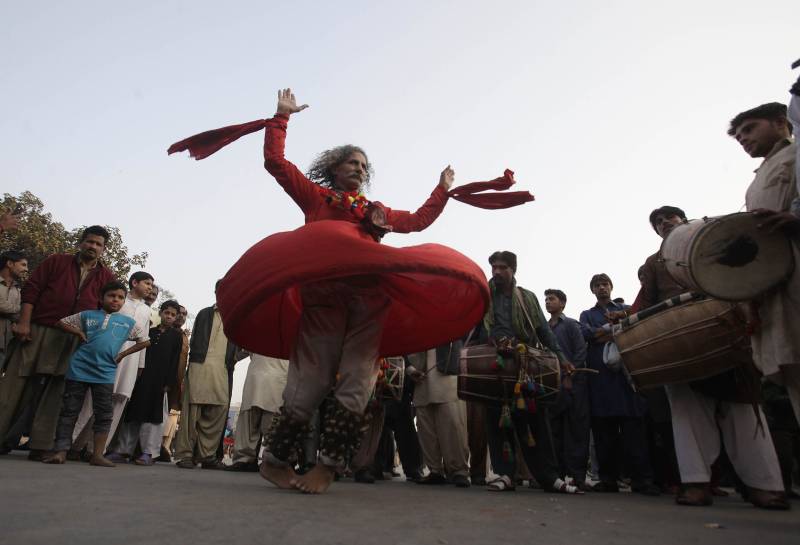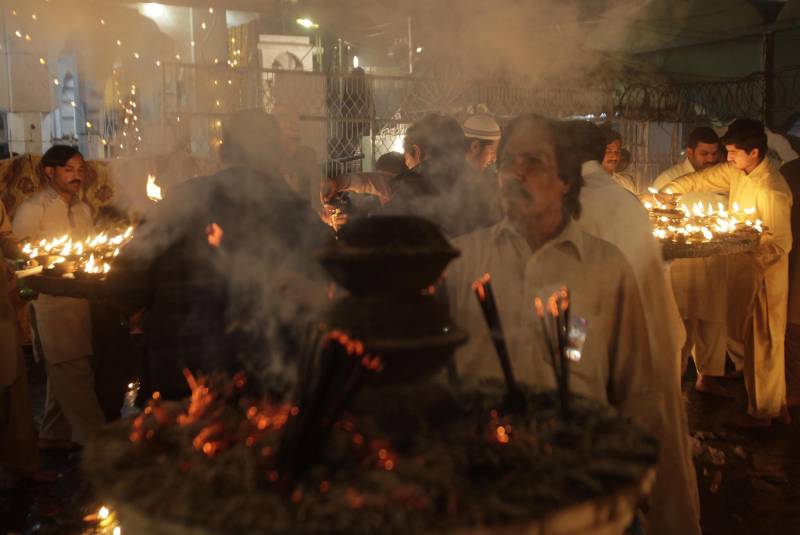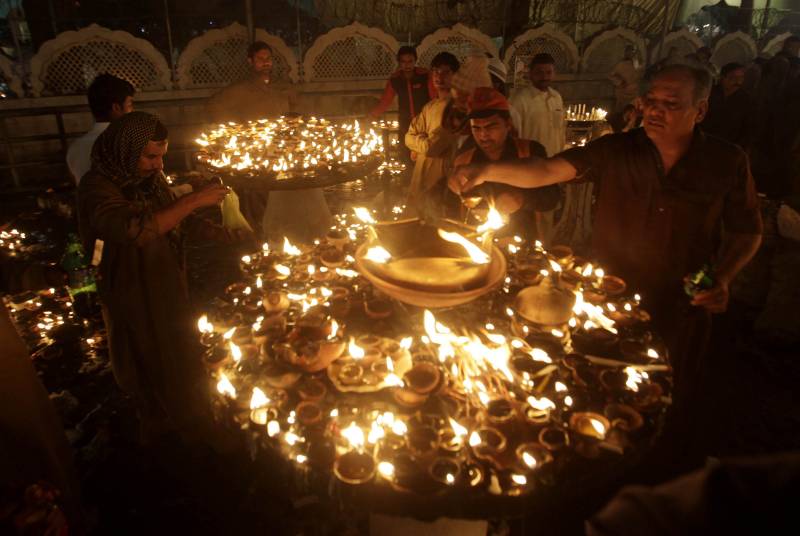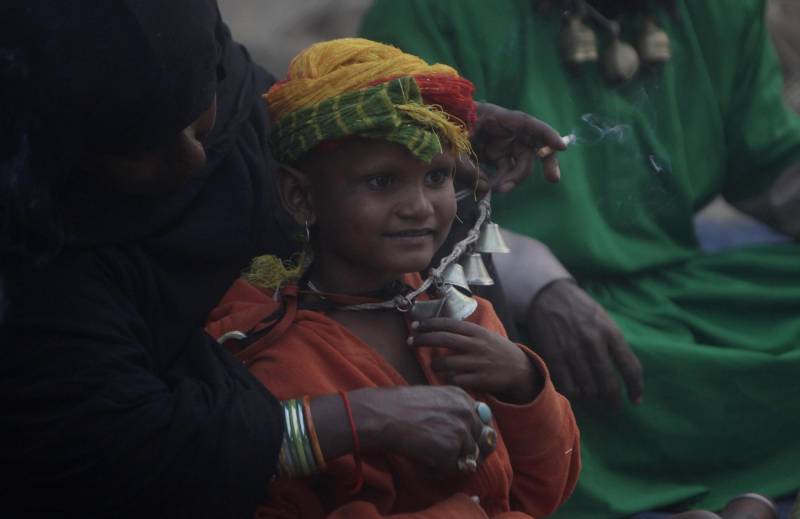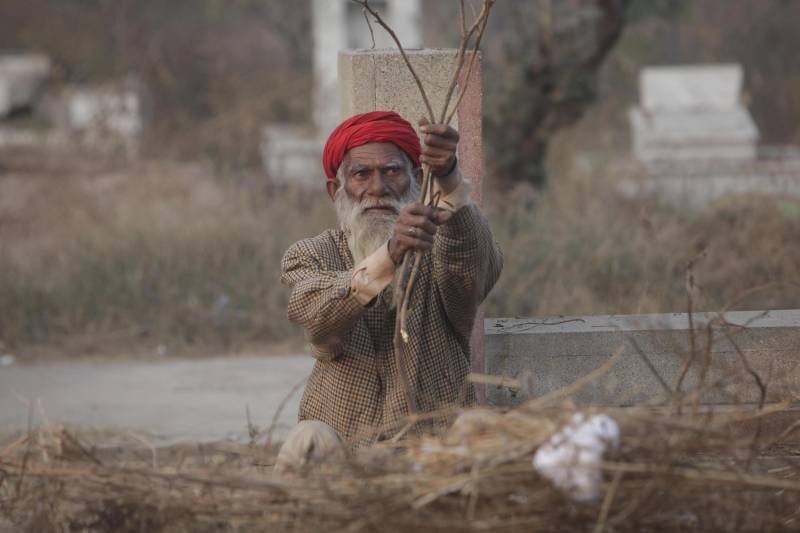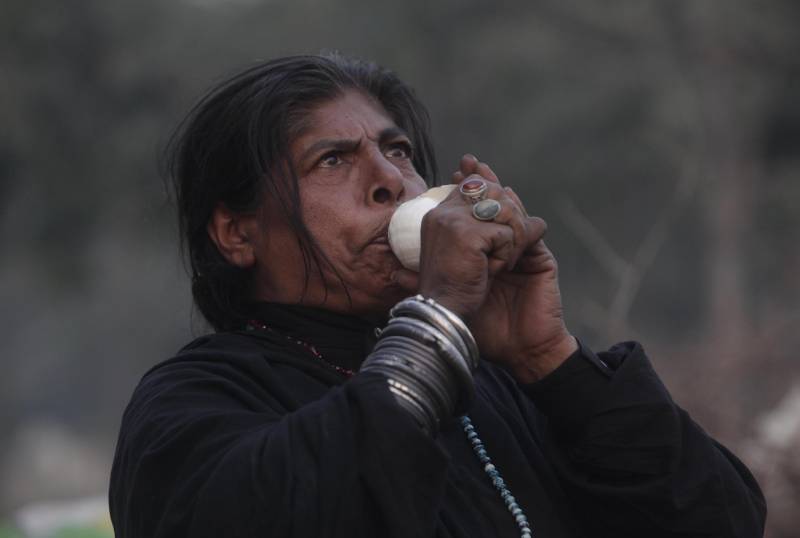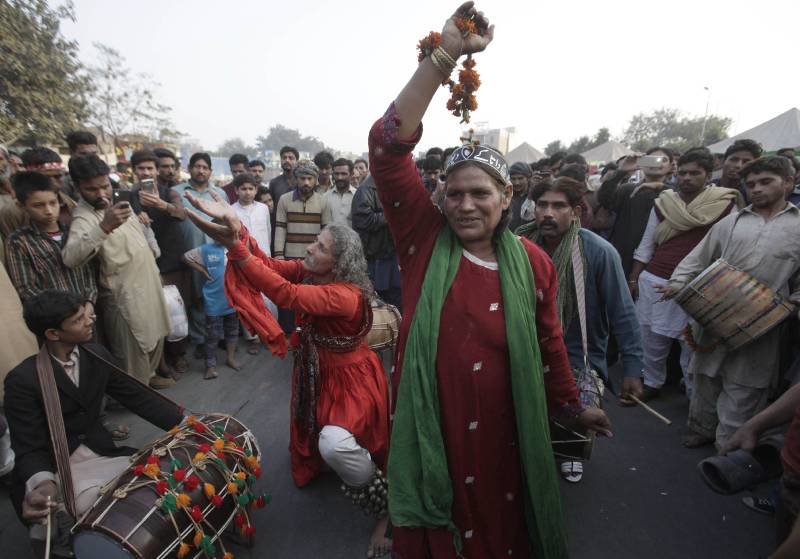LAHORE: He has been whirling continuously for an hour in the middle of the road- a man in his 50’s, bare foot, wearing bells over his ankles. He moves as though he is not human, round and round, not one tell-tale sign of exhaustion on his face.
“Dance, oh lovers of Ganj Baksh, dance!” a man chants beside the whirling man.
It is the 973rd anniversary of the revered saint known as Data Ganj Baksh. According to the Auqaf and Religious Affairs Department, 1.3 million people take part in the celebrations every year, effectively making it the biggest spiritual gathering of Sufi devotees in all of South Asia, gathering from within the country and around the world. The celebrations occur every year on the 18th, 19th and 20th of Safar, the second month of the Islamic calendar.
Abul Hassan Syed Ali Ibn Usman al-Jullabi al-Hajveri al-Ghaznawi, known to most of the Muslim world as Data Ganj Baksh, was born near Ghazni in present day Afghanistan and died in Lahore at the age of 65. He studied Sufism under Abul Fadl Muhammad, a known scholar of his time. His most famous work is Kashful Mahjoob (Revelation of the Veiled), written in Persian. The work, which is one of the earliest and most respected treatises of Sufism, debates Sufi doctrines of the past. His whole life was spent emphasising self-consciousness and ‘Mujahida,’ the struggle to achieve the truth.
“He loves humans, so we love him,” a man whispers next to me, on a road before the shrine.
All roads leading to the shrine are packed with devotees holding their shawls and dancing to beating drums. Loudly they chant in Persian:
“A man who distributes treasures and blessings in the world, a symbol of God’s blessings, a guide for those who are imperfect, a leader for those who are perfect.”
The distribution of milk, qawaali and a private gathering of devotees mark the anniversary celebrations. Rich and poor come to pay their homage. They recite the Quran, offer prayer and distribute food among strangers and visitors. At night, the shrine is illuminated- like a domed star in the centre of the city.
Every conceivable kind of religious practice is at play. Voices recite ‘naats,’ people listen to the words of scholars, they wander happily to Sama’a Hall to enjoy sufi music. Still others distribute food, dancing to drums at the same time.
A large number of people sit around the mausoleum of the great sufi saint, meditating in silence.
“For 30 years, I have come to the shrine to express my love for the man in the grave, the one who spread peace and stood with the oppressed of his time. He taught us love and peace through his character,” says Murtaza Fakhri, a 50 year old man, wearing a shawl and the customary white headwear. “I arrived from Pakpattan today, and will spend two days at the shrine, because the stay here provides me with spiritual strength and great mental peace.”
“We sing for Data Sahib!”, says Shahbaz Hussain, a qawaal at the shrine. It is not just fun, it is the way we pay him our salam for his great service for the people of this region. We participate in qawaali here, to sing the song of love.”
“Also,” he adds, “We’re so happy because Radio Pakistan will broadcast our ‘Qawali at 1 am tonight!”
“I have brought 400 kg of milk to distribute it amongst those who have come here to pay him salam,” says another devotee as he unloads cans of milk from a pickup van he has brought from Kasur. “It provides me with a sense of sacrifice, and that is the lesson of the great man we have come for.” (Photos by staff reporter Mohsin Raza)

